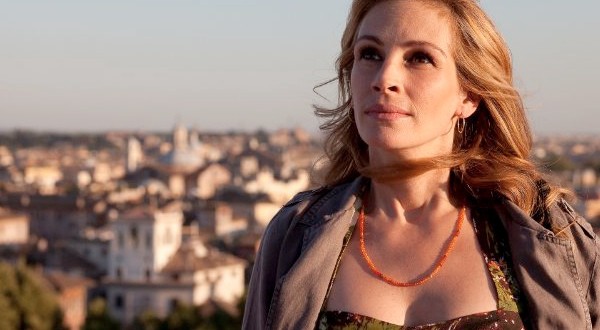Do you want to know about one of my favorite guilty pleasures?
You might have a similar one.
I love watching “House Hunters” on HGTV. There’s nothing better to do on a lazy Sunday morning than curl up on my couch—coffee in hand—watching and shouting at the television, telling the clueless couple to go with House #2 because they can just repaint the damn walls instead of making the horrible decision of going with House #1—the one the husband wants that’s $75,000 over budget but is big enough for him to build a custom brick oven for his artisanal pizzas.
But lately, I’ve noticed something about the way I feel after watching. Instead of feeling relaxed from binge-watching a silly show, and being grateful for not having to work, I started feeling resentful. I started to think, “Wait, why can’t I have the opportunity to buy a big fancy house? Why am I here instead, in this small apartment?”
And that resentment got me thinking about something that many of us do as we recover from divorce (or any major heartache). It’s a nasty habit that keeps us from being happy and able to love this new chapter in our lives.
We focus on what we lack.
When we’re learning how to get our lives back, it’s an easy trap to fall into. Once we start feeling bad about where we are, instead of being happy with it, we forget all the good stuff. And the roadblock only gets worse, because then we start telling ourselves things like this:
“I’m too old to be single. I should have a partner.”
“I should still be happily married right now.”
“I should be as successful as the family and friends I have on social media.”
“I should have as much money as all those news articles say I should.”
This way of thinking is dangerous as we move on because it relies on some external force to dictate how our lives should be. But only we have the power and control to do that.
The next obstacle: We compare ourselves to others.
We fall into the social media trap of spending our precious time looking at the heavily-edited representations of other people’s lives on Facebook or Instagram, and we start to compare our own lives to the illusions they post.
You know what I’m talking about. The one where the old high school classmate has uploaded a picture of her million-dollar beach house and puts #blessed in the caption.
Or the one where a distant relative has posted a picture of her feet in the sand, a tropical drink in hand and writes, “So lucky in my life” or some crap like that.
How about the one where someone brags about their job promotion or the fact that they’ve won the lottery. Or bought a new car. Or the picture of their business class seat. Or the VIP seats at the reunion tour of your favorite band.
We have all been guilty of thinking we need other things in order to make our lives how we want them.
We forget just how much good we already have.
I like to think of this as the “psychology of abundance.” When we are going through divorce, or recovering from heartache, and trying to figure out the rest of our lives, we forget that we actually have the world at our fingertips, and that we have an ass-load of things going for us.
Sure, our lives and level of stability have changed.
Sure, our financial situation may seem shaky and we may be worried about supporting ourselves.
Sure, our identity may be going through an existential crisis and we may be lost, not knowing who we are now or what we want as we start the next chapter of our lives.
Nobody’s denying the shake-up. But guess what riches that shake-up represents?
The fact that we are still alive.
That we are here.
That we have been given a second chance at life.
That we have the opportunity—the gift—to reframe our lives in a different way.
Do you have any idea how rich those gifts are? Do you know how wealthy those things make us? Screw the pictures on Facebook. To hell with society’s expectations of where we “should” be. We get to control what we have. We are the rich ones here.
When I was going through my own divorce, I was floored and stressed and reeling from all the things I though I’d lost—a comfortable financial situation, a partner in life, a future I thought I knew.
One day, as I was mourning my losses and not focusing on the abundance of things I actually had (my health, a decent job, my dogs, good friends, and a supportive family), I got a kick in the ass. I was flipping through an old literature book from my college days and a quote popped out. It was written a world away and lifetime ago, but it was like it was written just for me:
“If your daily life seems poor, do not blame it; blame yourself, tell yourself that you are not poet enough to call forth its riches; for to the creator there is no poverty and no poor indifferent place.” ~ Rainer Maria Rilke
That last part woke me up—for the creator there is no poor indifferent place.
You see, when it comes to moving on after painful events and taking control of our lives, we are the creators. We are the ones who have the responsibility—the gift—of taking what we have now and seeing it in a different light. And that can only happen once we change that mindset of, “I lack (insert whatever you think you lack) and can’t possibly feel complete without it,” to something along the lines of, “I am lucky because I already have everything I need in my life right now.”
Once we start celebrating what we have and not bemoaning what we do not, we become free. Our stress levels decrease. Our anxiety dissipates. Feelings of jealousy and bitterness start to disappear. And we become grateful, recognizing each new day as the gift that it is.
Here are four tips to help us start thriving with what we already have instead of wishing for things that we believe we are lacking:
1. The next time you feel bad because you think you’re lacking something, stop and explicitly state what you feel it is.
Here are two examples from my own life: “Ugh, I don’t have money for a down payment on a nice condo” and “I am so frustrated that I’m not living some bohemian life right now, going foreign city to foreign city.”
2. After pinpointing your perceived lack, reverse that way of thinking. Explicitly state why this “lack” is actually a good thing at this time.
For example: “Wait…that nice condo is going to have some super-high HOA fees. That actually means I will have to pay even more money per month than what I pay now—money I currently put in savings. Maybe a fancy condo isn’t such a good thing for me at this time.” Or, “Martha, you get bored after being on vacation for a week! And you can’t wait to get back to the U.S. where you have your dryer. And your peanut butter—you know you can’t live without your peanut butter.”
3. Acknowledge something you actually have for which you are grateful.
For me, it was, “Well, I don’t have a fancy condo, but I do have a delightfully cozy and affordable apartment that is super easy to clean and helps me stay within my budget—two things that many people do not have. Dang. I guess I am pretty thankful for that.” And, “I may be based in my current city, and I may not be a bon vivant living one week in Paris and the next week in Dubai. But I do live in a pretty great city that I am comfortable in and miss when I am gone. I’m grateful for where I am right now—in a place I love.”
4. Make a habit of acknowledging those things you have.
Do it often. Do it every day. Heck, write it in a journal if you have one. You will find that the more often you divert your way of thinking about the things you lack and focus instead on the things that you have, you will find that the previous feelings you had of being hard on yourself, feeling jealous, resenting others for what they have, and feeling bitter start to decrease, and may even just disappear.
When you focus on what you do have more regularly, you start to notice all the great things going on in your life. And once you notice them, little by little, you will find yourself grateful for them and realize just how abundant your life already is.
Because you have enough.
And you’re doing great with what you have.
But you can still watch “House Hunters” if you want!
~
~
Author: Martha Bodyfelt
Image: YouTube screenshot
Editor: Nicole Cameron
Copy Editor: Catherine Monkman
Social Editor: Catherine Monkman












Read 1 comment and reply